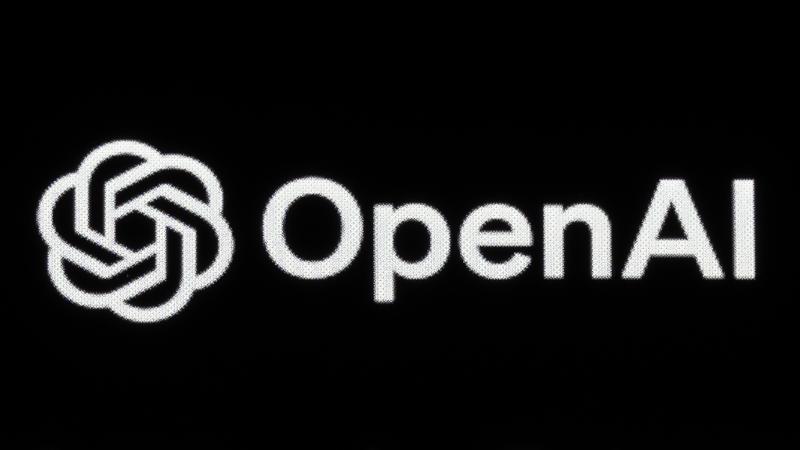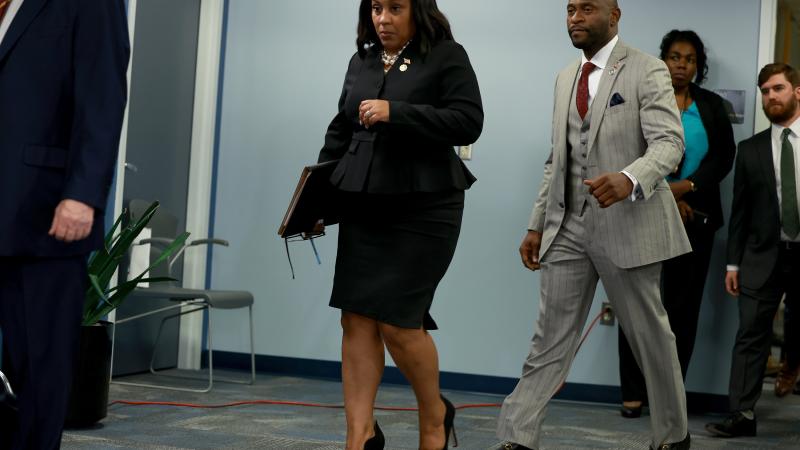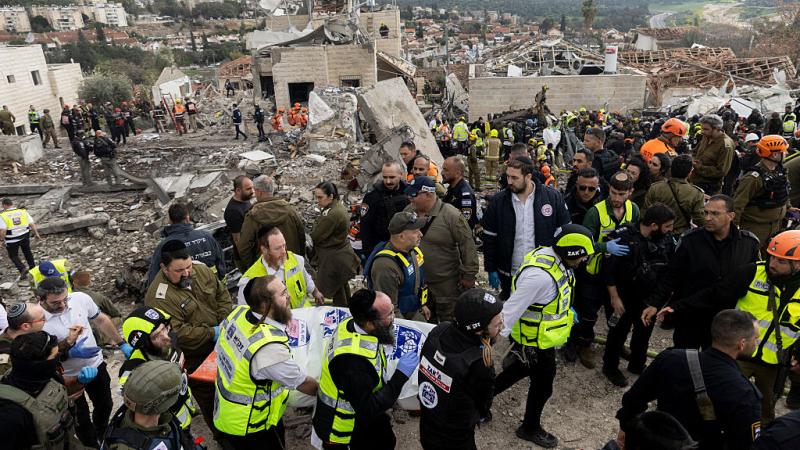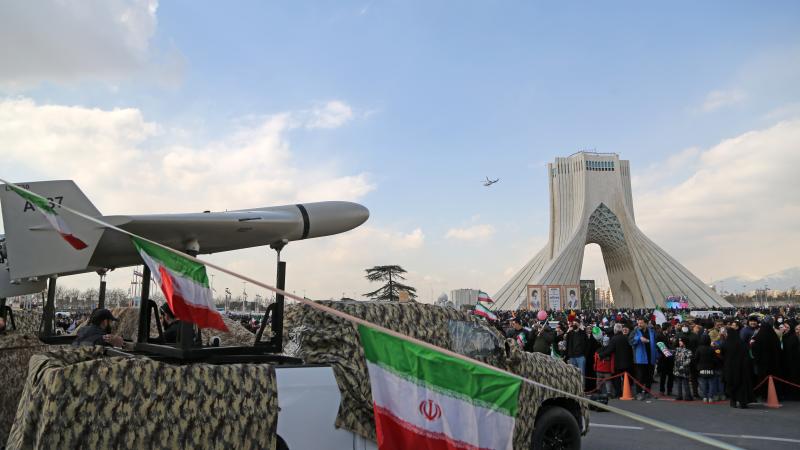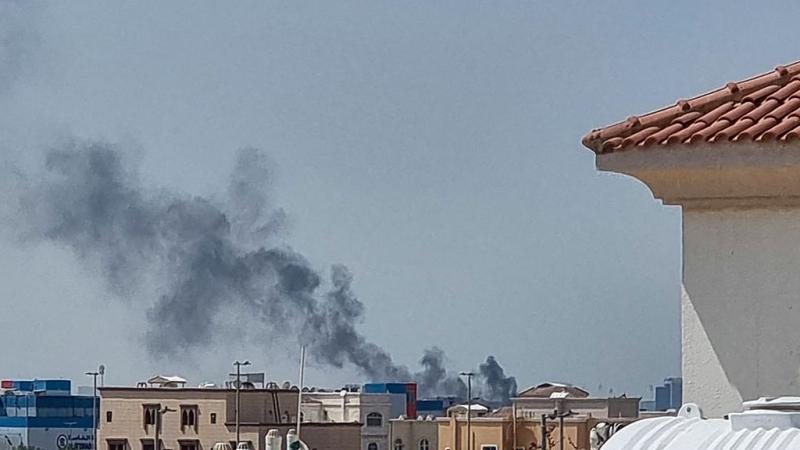Twitter flags Republican tweets for 'glorifying violence,' but leaves others untouched
The company's 'glorification of violence policy' appears unevenly enforced.
Twitter for several years has been at the forefront of one of the tech world's more intractable ongoing problems: To what extent do social media companies regulate the speech posted on their platforms?
Most companies police user content to varying degrees. Facebook's "community standards," for instance, forbid an extensive range of posts from sexual content to "cruel and insensitive" material — though Twitter has for years overseen user posts in an arguably more hands-off manner: It allows sexually explicit content, for instance, while Facebook's recent censorship of anti-lockdown protest groups drove home its heavier hand of content regulation.
Yet Twitter in recent weeks is indicating that it intends to increase regulation of at least some types of tweets: It has flagged several posts from prominent Republican politicians — including President Donald Trump — and claimed that their messages violate its terms of service regarding the "glorification of violence."
While Twitter does in principle prohibit those types of tweets, the platform has shown that in practice, it accords far more leeway to violent rhetoric from non-Republicans.
President, GOP representative both get tweets flagged
Last week, as the violent protests following the death of Minneapolis resident George Floyd began picking up steam throughout the country, Trump issued a scathing late-night tweet:
Edit media
Twitter quickly slapped that tweet with a warning. "This Tweet violated the Twitter Rules about glorifying violence," the company said, though it added that it had "determined that it may be in the public’s interest for the Tweet to remain accessible."
On its website, Twitter spells out the terms of the cited policy: "Glorifying violent acts could inspire others to take part in similar acts of violence," the company states. Under the policy, users "can’t glorify, celebrate, praise or condone violent crimes, violent events where people were targeted because of their membership in a protected group, or the perpetrators of such acts."
Whether the president's tweet actually violated those terms is unclear: A martial response to civic destruction is not, on its face, a "violent crime," nor are looters themselves part of a "protected group." Twitter itself does not offer any explanation as to what part of Trump's tweet specifically triggered the violation, so users are left to guess.
A tweet several days later from Florida Republican Rep. Matt Gaetz was slapped with a similar warning. Following the president's declaration that the violent anarchist group Antifa would be designated a terrorist group by the United States government, Gaetz wrote on Twitter on Monday:
Edit media
Now that we clearly see Antifa as terrorists, can we hunt them down like we do those in the Middle East?— Matt Gaetz (@mattgaetz) June 1, 2020
That tweet, too, was hit with a violence-glorification policy violation, even though it did not specifically mention violence and again seemed to fall outside of the boundaries of the policy set by Twitter itself.
"Big tech companies like Twitter appear to care more about the public’s perception of their brand than allowing free discourse on their platform," Gaetz told Just the News on Tuesday. "They have tilted the scales to editorialize and shape our conversations.”
“The double standard exhibited by these tech giants is staggering. Twitter targets users like President Trump and myself when we promote the America First view that people should be held accountable for their violent actions but allow accounts espousing Antifa’s violent propaganda to remain online," he added. "We need to bring an end to this unacceptable hypocrisy by reforming the laws that give entities like Twitter so much protection.”
Not every pro-violence tweet gets struck down
Twitter has around 300,000,000 monthly active users, significantly less than Facebook but likely still enough to make widespread enforcement of its in-house rules difficult. It is perhaps unsurprising that the more visible accounts, especially those of contentious politicians, will bear the brunt of policy violations, fairly designated or not.
Yet, the site overall has only about 150,000 "verified" users — public figures deemed important enough for their accounts to be confirmed as authentic — a number which forms just 0.05 percent of its larger base. That smaller niche should arguably be easier to police than the larger population.
Yet, pro-violence posts nevertheless proliferate on the site among numerous verified accounts. Writer and editor Rachel Hislop, for instance, recently wrote on her verified account: "Clearly, rioting works. Cleary [sic] burning things works." Implicitly dismissing nonviolent activist efforts, she added: "We've been asking + marching + screaming + crying + tweeting + think-piecing for YEARS."
Edit media
Clearly, rioting works. Cleary burning things works. We've been asking + marching + screaming + crying + tweeting + think-piecing for YEARS. Inside of me, there is deep anger that this is the first time you've heard it and now want to police how it's said.That's privilege.— Rachel H. (@RachelHislop) June 1, 2020
Hislop has just about 5,300 followers — significantly more than the average Twitter user, yet less than some of the bigger accounts. Yet other accounts with larger visibility have issued even more pointed calls for violence.
Among them: Colin Kaepernick, the NFL quarterback who launched a nationwide movement by kneeling during the national anthem during NFL games. During the first wave of violent riots last week, Kaepernick tweeted: "When civility leads to death, revolting is the only logical reaction."
Edit media
"The cries for peace will rain down, and when they do, they will land on deaf ears, because your violence has brought this resistance. We have the right to fight back!" he declared. That tweet went on to be shared nearly 90,000 times, a huge amount by average Twitter standards.
Neither Hislop nor Kaepernick's tweets were flagged. Nor was a tweet by Jacobin Magazine, a socialist quarterly. The publication shared an article by writer Paul Heideman titled "When Rioting Works." The piece, which explained how violent property destruction "can be effective in winning social change," has gone unflagged.
Edit media
When rioting works: https://t.co/LAmVdsOstq— Jacobin (@jacobinmag) June 1, 2020
Also unflagged was a viral thread by Root writer Michael Harriot, who explained to his readers "all the times when rioting and violence worked."
Issue goes back years
Tweets celebrating and glorifying violence did not suddenly arise during the present riots. In numerous cases over the years Twitter users have promoted violent action while, as today, going unpunished for it.
U.C. Riverside professor Reza Aslan, for example, gave a very stark endorsement of violence on Jan. 20, 2019, during the Covington Catholic High School hysteria, in which several high school boys were falsely accused of targeting a Native American man with racist abuse. Responding to a photograph of one of the boys, a minor, Aslan wrote: "Honest question. Have you ever seen a more punchable face than this kid's?"
Aslan left that post up for an entire year, long after the scandal was revealed as a hoax. Comparing Aslan's tweet to Gaetz's tweet, or even President Trump's, raises a vital question for anyone using Twitter: How exactly does the company decide what constitutes glorification, or even what constitutes violence?
That question is thrown into still sharper relief by the Twitter feed of Ali Khamenei, the Supreme Leader of Iran. Khamenei's feed is dripping with violence, both implied and explicit.
"The Zionist regime is a deadly, cancerous growth and a detriment to this region. It will undoubtedly be uprooted and destroyed," Khamenei declares in one tweet. Elsewhere, comparing Zionist thought to a viral infection — a perennial anti-Semitic trope — the Supreme Leader writes: "The long-lasting virus of Zionism will be uprooted thanks to the determination and faith of the youth."
None of these tweets has been flagged, even though all of them were issued well after Twitter implemented its violence glorification policy in 2017. That Twitter would let tweets calling for violent assault and the ethno-destruction of a Jewish state slide, while flagging tweets that contain no readily identifiable policy violations, suggests the company is defining "glorification" and/or "violence" in highly selective, relativistic terms.
Twitter remains largely unpoliced — only a tiny fraction of tweets appear to receive any designation at all — but going forward it will likely be critical for users, particularly prominent ones such as politicians and other highly visible public figures, to know just how its in-house rules are going to be enforced. If they are applied equitably, few are likely to complain. If they are unevenly enforced along what are widely perceived as political lines, Twitter could face a major backlash from a significant portion of its user base, particularly if heavy-hitting users like Trump himself continue to draw attention to the issue.


